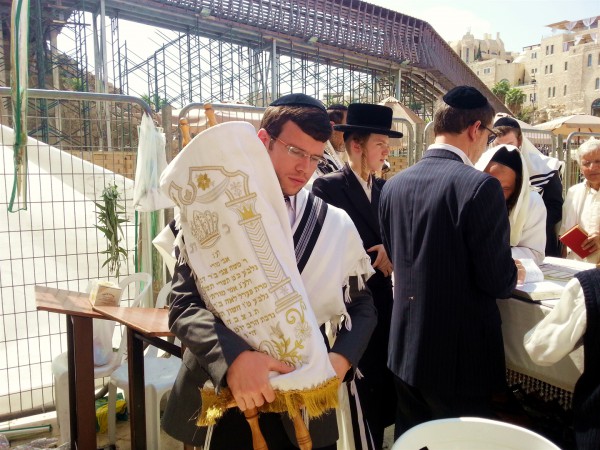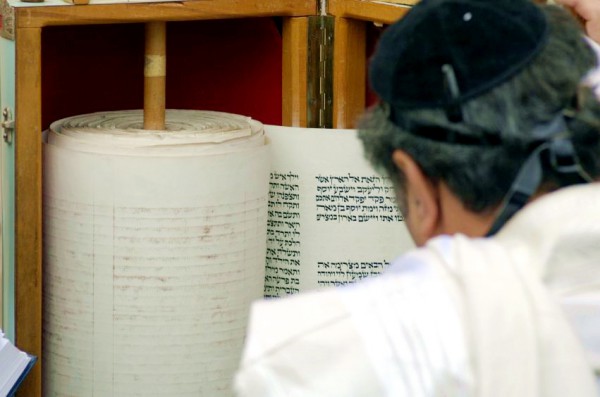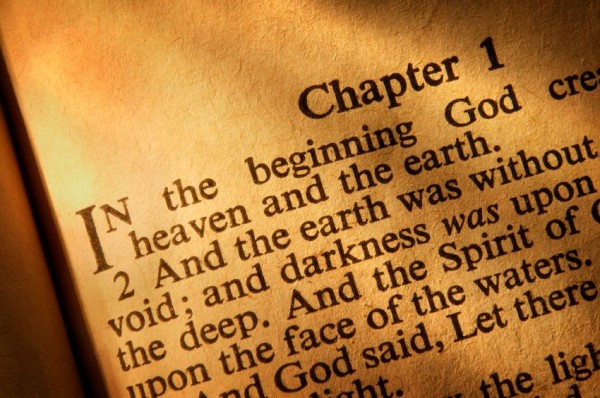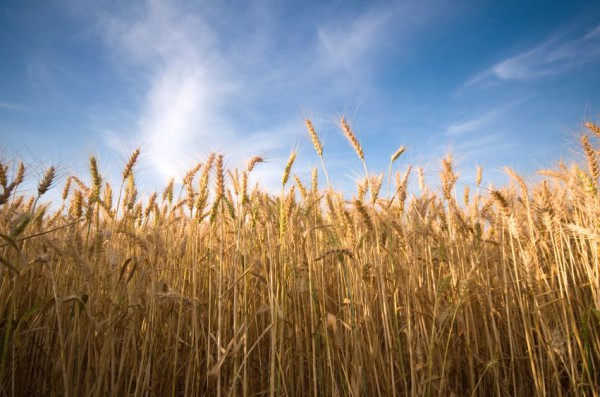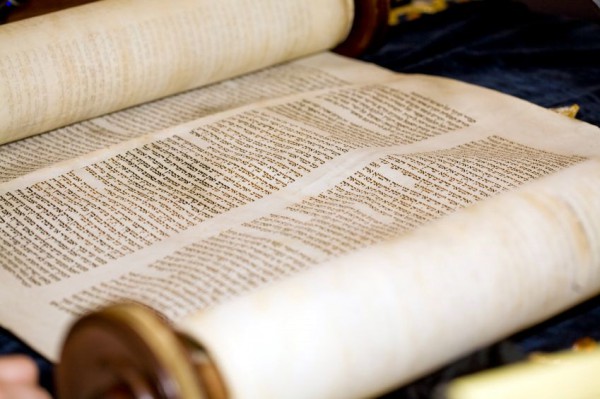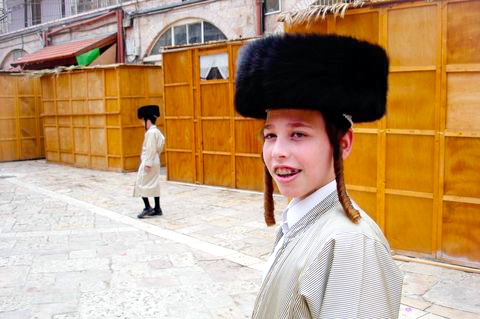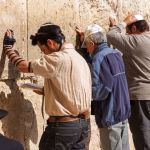Parasha Emor (Speak)
Leviticus 21:1–24:23; Ezekiel 44:15–31; Luke 14:12–24
“The Lord said to Moses, ‘Speak to the priests, the sons of Aaron, and say to them: A priest must not make himself ceremonially unclean….'” (Leviticus 21:1)
In last week’s combined Torah portion, Parasha Acharei-Kedoshim, we discussed what it means to live a holy life.
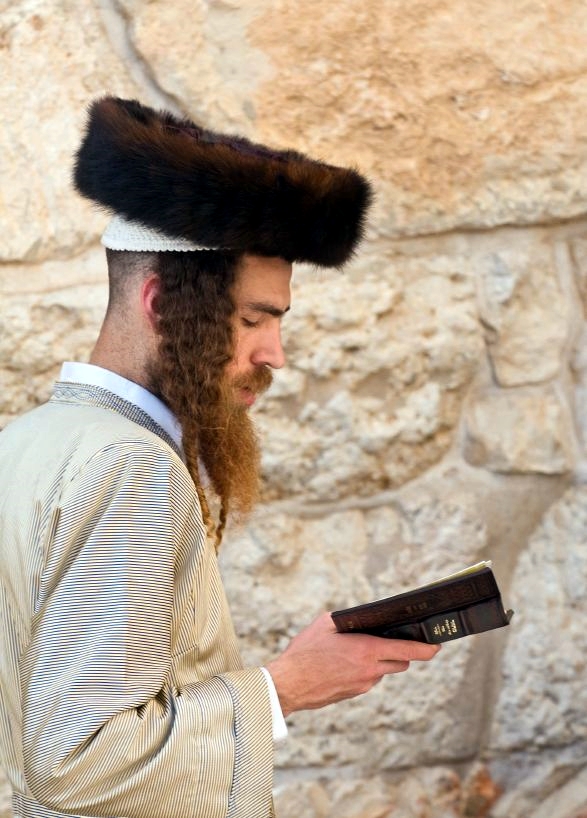
Based upon the Bible’s injunction not to shave the corners of one’s head, in the Orthodox Jewish community, payot (sidelocks or sidecurls) are grown long.
This week’s Parasha continues with the theme of holiness, specifying that the Cohanim (priests) must adhere to a higher standard of sanctity since they ministered to the Lord on behalf of the people.
“Because they present the food offerings to the Lord, the food of their God, they are to be holy.” (Leviticus 21:6)
God prohibited the priests from following several customs of the heathen nations, including shaving their heads, shaving off the corners of their beards, cutting their flesh, and marrying prostitutes or divorced women.
Furthermore, a Cohen (priest) who was deformed, blemished, or defiled could not go into the Holy of Holies in the Temple of Jerusalem.
Yeshua (Jesus) conformed to this exacting standard of holiness. As our High Priest, He was without sin.
“For we do not have a high priest who is unable to sympathize with our weaknesses, but we have one who has been tempted in every way, just as we are—yet was without sin.” (Hebrews 4:15)
Yeshua is coming back for a people who strive to be holy as He is holy, so let us prepare for His coming, living lives that are worthy of Him.
“As obedient children, do not conform to the evil desires you had when you lived in ignorance. But just as He who called you is holy, so be holy in all you do; for it is written: “Be holy, because I am holy.” (1 Peter 1:14–16)
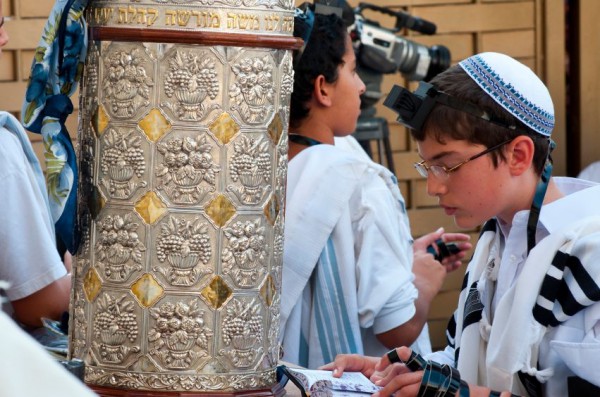
A young man recites prayers at the Western (Wailing) Wall. The straps on his hand and the small leather black box on his forehead are tefillin. Tefillin symbolically binds together heart, mind and deed to remind the wearer that our thinking, feelings, and actions must be submitted to God in order to live a holy life. Yeshua (Jesus) the Messiah wore Tefillin as a Torah observant Jew.
God’s Appointed Times: The Callings of Holiness
“The Lord said to Moses, ‘Speak to the Israelites and say to them: These are my appointed feasts, the appointed feasts of the Lord [Moed YHVH], which you are to proclaim as sacred assemblies.’” (Leviticus 23:1–2)
God not only sanctifies people and places, but also time.
People, place, and time are a three-strand cord held together by the One who sanctifies and makes each of us holy.
In the second part of Parasha Emor, God lists the annual Callings of Holiness, in which He appoints certain days as celebrations or memorials of Him.
These celebrations are called Moed YHVH.
Indeed, the Hebrew word moed means appointed time, place or meeting. It is often translated as festival or feast.
YHVH is the sacred name of the Lord. It is often transliterated as Jehovah or Yahweh, but Jewish people avoid saying the Lord’s actual name because they believe it is too holy to speak.
Therefore, many English Bibles substitute the name YHVH with the LORD. This is why Moed YHVH is translated feasts of the Lord in Leviticus 23:2.
Similarly, when Jewish people read the Torah and come to the name YHVH, they will say Adonai (Lord) or HaShem (the Name) in an effort to prevent using the name of the Lord in vain.
Are the Feasts of the Lord Relevant to Believers Today?
People often refer to God’s appointed times as the “Jewish holidays” or the “Feasts of Israel.”
Many non-Jewish Believers don’t observe them, fearing that they will appear “too Jewish” or that they have “come under the Torah (law).”
But God calls them HIS feasts—HIS appointed times.
If they belong to God, then they are also the privilege of the people of God, both Jew and non-Jew.
If these appointed times were only for Israel, then we might also be tempted to think that the Messiah and even the Bible itself were only for Israel.
The following are seven appointed times of God or feasts of the Lord:
1) Shabbat: The Foundation
The first “appointed day” is Shabbat (the 7th day). All the other feasts build upon this foundation.
The Hebrew word Shabbat comes from the root S-B-T, which means to cease, to end or to rest. That is what we are to do. For one day a week, creative activity is to come to a halt.
Shabbat symbolizes our “works” being finished.
It’s an eternal sign that God created the universe in six days and rested on the seventh. It is also a commemoration of the Exodus from Egypt (Genesis 2:2; Exodus 31:15–17; 16:23).
Although we have come to expect a five-day work week, in the ancient world, the concept of having a day off was radical.
“For in six days the Lord made the heavens and the earth, the sea, and all that is in them, but he rested on the seventh day. Therefore the Lord blessed the Sabbath day and made it holy.” (Exodus 20:11)
2) Pesach (Passover): Festival of Deliverance
“This is a day you are to commemorate; for the generations to come you shall celebrate it as a festival to the Lord—a lasting ordinance.” (Exodus 12:14)
The second appointed day is Passover (Pesach), followed by seven days of the Feast of Unleavened Bread (Chag haMatzot).
The Hebrew root of Pesach (P-S-CH) means to pass over, to exempt or to spare, since the angel of death “passed over” the Israelites in Egypt when he saw the sign of the blood on their homes in Egypt.
Today we also recognize that the blood of the Lamb of God, who is Yeshua, symbolically covers the doorposts and lintels of our lives in order that the coming wrath of God will “pass over” us.
One day, the judgment of God will come upon the earth. At that time, God will once again “pass over” His people in Jerusalem and rescue them.
“Like birds hovering overhead, the LORD Almighty will shield Jerusalem; He will shield it and deliver it, He will ‘pass over’ it and will rescue it.” (Isaiah 31:5)
The coming seven plagues described in Revelation 16 are reminiscent of the plagues that God poured out upon Egypt in order to liberate the Israelites.
But no matter what happens in the last days, we are to be confident, knowing that God is our refuge and strength, and our perpetual help. Even if the mountains fall into the sea, we should not succumb to fear (Psalm 46).
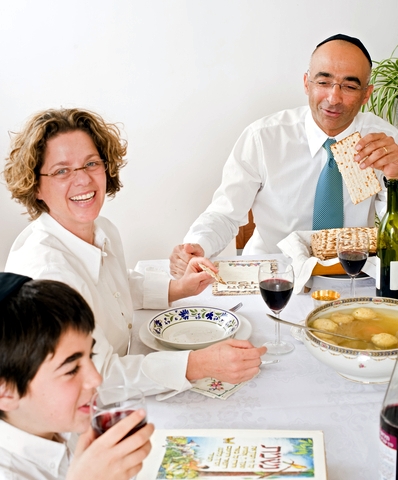
On the first night of Passover, Jewish families gather for the Passover Seder, a ritual feast at which the story of our deliverance from Egypt is retold, as Scripture commands.
3) Counting the Omer: Yeshua’s Resurrection Is a Sign of Things to Come
“From the day after the Sabbath, the day you brought the sheaf of the wave offering, count off seven full weeks. Count off fifty days up to the day after the seventh Sabbath, and then present an offering of new grain to the Lord.” (Leviticus 23:15–16)
The second day of Passover (the Feast of Unleavened Bread) begins the barley harvest, a time of reaping the produce that had been sown over the winter.
On the first day of the barley harvest, the first sheaf of barley (an omer or unit of measure) was presented in the sanctuary.
Every feast in the Torah points to Yeshua as the coming Messiah (Mashiach), and so does this feast.
Yeshua rose from the grave on the day of Waving the Firstfruits, the first day of celebrating a new harvest and counting the Omer.
He is the first fruits of all those who will also be raised up into new life (1 Corinthians 15:20, 23).
4) Shavuot: Promise Fulfilled
“When the day of Pentecost came.… All of them were filled with the Holy Spirit.” (Acts 2:1–4)
Shavuot is an agricultural festival associated with the giving of the Torah on Mount Sinai.
It’s also called the Feast of Weeks because it’s celebrated seven weeks after the beginning of the Counting of the Omer (Leviticus 23:15–16).
Hellenist Jews called this holiday Pentecost (from the Greek meaning 50 since it falls on the fiftieth day after Passover).
On this day, the Ruach HaKodesh (Holy Spirit) came upon the apostles who awaited the fulfillment of the promise in Acts chapters 1 and 2.
“Do not leave Jerusalem, but wait for the gift my Father promised, which you have heard me speak about. For John baptized with water, but in a few days you will be baptized with the Holy Spirit.” (Acts 1:4–5)
5) Rosh Hashanah (Yom Teruah): The Call to Repentance
“On the first day of the seventh month you are to have a day of sabbath rest, a sacred assembly commemorated with trumpet blasts.” (Leviticus 23:24)
Although the first day of the seventh month on the Hebrew calendar is traditionally celebrated as a Jewish New Year (Rosh Hashanah), the Torah calls this day Zikhron Teruah, a memorial (zikhron) accompanied by a teruah (blast) of horns.
A teruah usually signals an alarm or call to pay attention to a command. It’s also a call to self-examination leading to repentance.
Indeed, Rosh Hashanah is the first day of the High Holy Days called Days of Awe (Yamim Noraim), and the ten days of repentance (Aseret Yemei Teshuvah) when Jews consider their behavior in the past year and ask forgiveness from those whom they have wronged.
These ten days culminate in Yom Kippur (Day of Atonement).
6) Yom Kippur (Day of Atonement): A Covering for Sin
“This is to be a lasting ordinance for you: On the tenth day of the seventh month you must deny yourselves [fast] and not do any work—whether native-born or a foreigner residing among you.” (Leviticus 16:29)
Yom Kippur, which falls on the tenth day of the seventh month, is a “Shabbat Shabbaton” —a Sabbath of Sabbaths.
While a regular seventh-day Shabbat is a time of joy and feasting, this Shabbat Shabbaton is a day to fast and afflict our souls (Leviticus 16:31).
Anyone who refuses to afflict their souls on this day is cut off from the people of Israel (Leviticus 23:29).
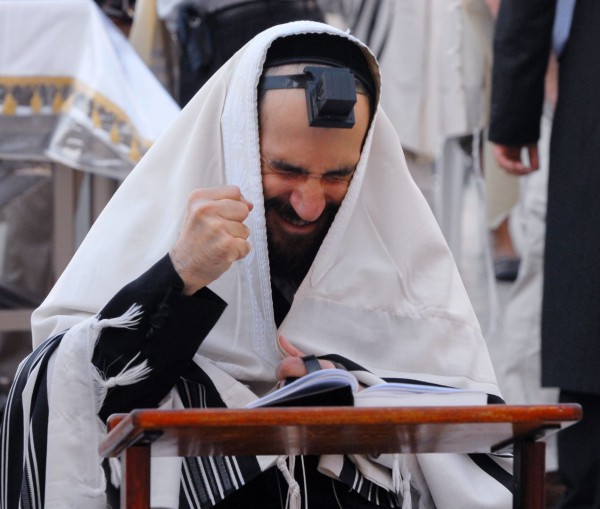
An observant Jewish man reciting prayers of repentance called Selichot at the Western (Wailing) Wall during the Days of Awe.
The Hebrew word for afflict shares a root with humility.
This is fitting since as we afflict ourselves through denial of food and drink, we identify with the afflicted of this world and are spurred to greater mitzvot (good deeds) towards those who are homeless, hungry, and poor.
Isaiah tells us that this is the type of fast that is acceptable to the Lord (Isaiah 58).
Kippur comes from the root kapar, which means to cover.
On this day, we remember Yeshua who gave His life as a kapara. His blood covers our transgressions (Romans 3:23; 1 John 2:2). It’s not a sacrifice that we should treat lightly.
“How much more severely do you think someone deserves to be punished who has trampled the Son of God underfoot, who has treated as an unholy thing the blood of the covenant that sanctified them, and who has insulted the Spirit of grace?” (Hebrews 10:29)
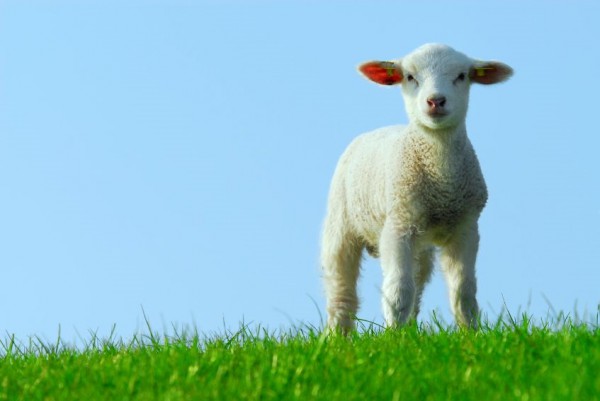
“The next day John saw Yeshua coming toward him and said, ‘Look, the Lamb of God, who takes away the sin of the world!'” (John 1:29)
7) Sukkot (Feast of Tabernacles or Booths): Prophetic Promise
“On the first day of the seventh month you are to have a day of sabbath rest, a sacred assembly commemorated with trumpet blasts.” (Leviticus 23:24)
Five days after Yom Kippur, God appoints the time of Sukkot for joyous celebration.
For seven days, starting on the 15th day of the seventh month, we are to live in sukkot (temporary dwellings) and rejoice before the Lord.
This festival is a memorial of the time the Israelites lived in sukkot in the wilderness after God delivered them from Egypt.
The sukkah is a picture of the covering and protection that God gives us. This holiday reminds us that even in a desert wilderness, God provides our needs.
Indeed, Scripture says that in times of trouble, He will hide us in His Sukkah (Psalm 27:5).
Sukkot also points to the Messianic Age.
In the Bible, the number seven represents fulfillment or completion. This seventh feast will be fulfilled when the Messiah returns and tabernacles with us.
“God’s dwelling place is now among the people, and He will dwell with them. They will be His people, and God himself will be with them and be their God. He will wipe every tear from their eyes.… There will be no more death or mourning or crying or pain, for the old order of things has passed away.” (Revelation 21:3–4)
What joy awaits us in that day! We can take heart in knowing that our current afflictions are light and momentary in comparison to the eternal weight of glory they are achieving for us (2 Corinthians 4:17).
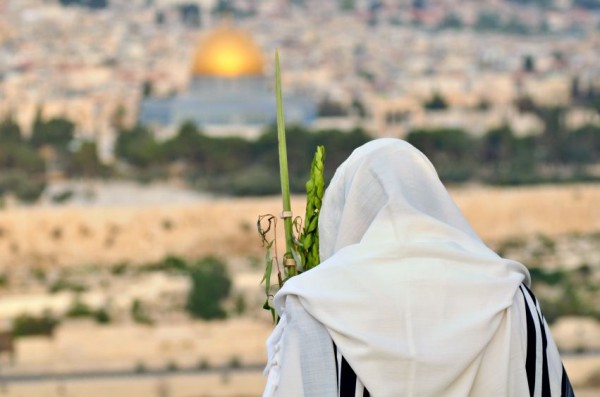
An observant Jewish man faces Jerusalem as he recites the blessing over the Arba Minim (Four Species) during Sukkot. The Four Species are the four plants mentioned in Leviticus 23:40 as relevant to observing Sukkot.
Have God’s appointed times been abolished? Bible prophecy related to Sukkot demonstrates that they are not.
In Zechariah 14, when the Messiah returns to win a victory for Israel against all the nations who have come against her, all the survivors of the nations will be commanded to keep the Feast of Sukkot.
All the nations that refuse to keep the Feast of Sukkot will be cursed with drought.
The Callings of Holiness (Moadim—Feasts), which are infused with so much spiritual and prophetic significance occur on an annual cycle. Jump in at any point, and celebrate the greatness of our God!




